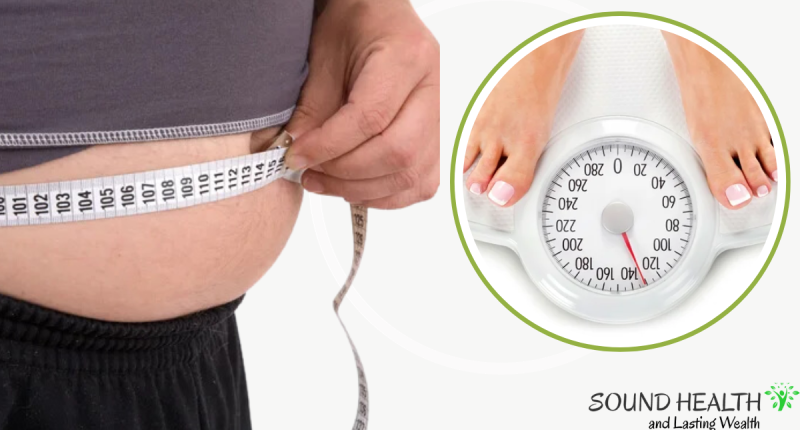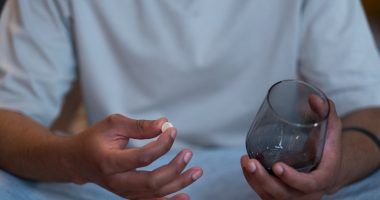15 Subtle Signs Your Body Is Aging Faster Than You Are – While aging is a natural process of life, certain subtle signs can indicate that your body is aging faster than you may think. These signs can be caused by a variety of factors, including genetics, lifestyle, and overall health. If you notice any of these signs, it’s important to talk to your doctor to rule out any underlying health conditions and make lifestyle changes to help slow down the aging process.
Here are 15 subtle signs that your body is aging faster than you are:
1. Unexplained weight gain
Even if your diet and exercise habits haven’t changed, unexplained weight gain, especially around the abdomen, can be a sign of hormonal imbalances associated with aging. Excess belly fat, also known as visceral fat, is linked to increased inflammation and a higher risk of chronic diseases such as heart disease, diabetes, and certain types of cancer.
- It is possible to control visceral fat through diet and exercise. To control visceral fat, eat a healthy diet low in processed foods and sugar, and engage in regular exercise. A good goal is to get at least 30 minutes of moderate-intensity exercise most days of the week.
2. Chronic fatigue
Persistent fatigue or a lack of energy can be a symptom of underlying health issues or hormonal imbalances that contribute to accelerated aging. Chronic fatigue can significantly impact your quality of life, affecting your ability to work, engage in social activities, and maintain overall well-being.
- If you are experiencing chronic fatigue, it is important to see a doctor to rule out any underlying health conditions. Your doctor may order blood tests or other tests to check for things like thyroid problems, anemia, or depression.
3. Trouble sleeping
Sleep disturbances, such as insomnia or restless sleep, disrupt your body’s natural repair and rejuvenation processes, leading to premature aging. Adequate sleep is crucial for hormone regulation, cell regeneration, and memory consolidation. When sleep is compromised, these essential functions are impaired, accelerating the aging process.
- There are a number of things you can do to improve your sleep hygiene and get a better night’s sleep. Establish a regular sleep schedule and stick to it as much as possible, even on weekends. Create a relaxing bedtime routine that includes taking a warm bath, reading a book, or listening to calming music. Avoid caffeine and alcohol before bed. Make sure your bedroom is dark, quiet, and cool. See a doctor if you have trouble falling asleep or staying asleep for more than a few weeks.
4. Joint pain and stiffness
Pain and stiffness in your joints can indicate that your cartilage, the protective tissue that cushions your joints, is deteriorating due to aging. Cartilage breakdown can lead to osteoarthritis, a degenerative joint disease that can cause pain, stiffness, and a reduced range of motion.
- There are a number of things you can do to manage joint pain and stiffness, including exercise, weight management, and physical therapy. Exercise helps to strengthen the muscles around your joints, which can help to take some of the pressure off of your joints. Weight management can help to reduce the amount of stress on your joints. Physical therapy can teach you exercises and stretches to help improve your range of motion and reduce pain.
5. Brittle nails and hair
Changes in nail texture, becoming brittle or ridged, and hair loss or thinning can be signs of nutritional deficiencies or hormonal imbalances associated with aging. As we age, our bodies may absorb nutrients less efficiently, and hormonal changes can affect hair growth cycles.
- You can help to prevent brittle nails and hair by eating a healthy diet that is rich in nutrients, such as biotin, iron, and zinc. You can also take a multivitamin or other supplements under the guidance of your doctor.
DON’T MISS: 8 Worst Habits for Your Bones As You Age
6. Slower wound healing
If you notice that cuts, scrapes, or other wounds are taking longer than usual to heal, it could be a sign that your body’s ability to repair itself is slowing down with age. This impaired healing capacity can increase the risk of infections and delay the recovery process.
- There are a number of things you can do to promote wound healing, such as keeping the wound clean and dry, eating a healthy diet, and getting enough rest. If you have a wound that is not healing properly, see a doctor.
7. Decreased Muscle Mass
Losing muscle mass, a condition known as sarcopenia, is a common sign of aging that can lead to weakness, fatigue, and increased risk of falls. Sarcopenia can result from changes in hormones, decreased physical activity, and inadequate protein intake.
To combat sarcopenia, engage in regular resistance training exercises that target all major muscle groups. Aim for at least two to three strength training sessions per week, including exercises like squats, lunges, push-ups, and rows. Ensure adequate protein intake, aiming for 0.8-1 grams of protein per kilogram of body weight daily. Consider protein supplements if you struggle to meet your protein needs through diet alone.
8. Frequent Urination
Needing to urinate more often, especially at night, can be a sign of changes in bladder control or urinary tract infections that are more common with age. Urinary incontinence can significantly impact your quality of life and social interactions.
To address frequent urination, maintain a healthy bladder by avoiding excessive fluids, especially caffeine and alcohol, before bed. Strengthen your pelvic floor muscles with Kegel exercises, which can help control bladder function. Manage underlying health conditions, such as diabetes or enlarged prostate, that can contribute to urinary frequency. Consult your doctor if urinary problems persist or become disruptive.
9. Reduced Libido
A decline in sex drive can be caused by hormonal changes, stress, or underlying health conditions associated with aging. Lower testosterone levels in men and changes in estrogen production in women can contribute to reduced libido.
To address reduced libido, consult your doctor to rule out any underlying medical conditions. Manage stress effectively through relaxation techniques like yoga, meditation, or deep breathing exercises. Prioritize quality sleep, as sleep deprivation can negatively impact libido. Consider couples therapy or counseling to address any relationship issues that may be affecting sexual intimacy.
10. Memory Problems
Occasional forgetfulness is normal, but consistent problems with memory, such as forgetting recent events or having trouble finding words, could be a sign of cognitive decline. Cognitive decline can be associated with underlying conditions like Alzheimer’s disease or dementia.
To maintain cognitive function, engage in mentally stimulating activities like reading, puzzles, or learning new skills. Maintain a healthy diet rich in fruits, vegetables, and whole grains, which provide nutrients essential for brain health. Engage in regular physical activity, which improves blood flow to the brain and promotes cognitive function. Manage stress effectively, as chronic stress can negatively impact brain health. Consult your doctor if memory problems become persistent or interfere with daily life.
DON’T MISS: Osteoporosis Effect: Can Laziness Make Your Bones Weak? Know From The Expert
11. Diminished Senses
A gradual decline in vision, hearing, taste, or smell can be a natural part of aging, but it can also be influenced by lifestyle factors and underlying health conditions. Sensory decline can impact your daily activities and overall quality of life.
To maintain sensory function, get regular eye and hearing exams to detect and address any vision or hearing problems. Protect your eyes from harmful UV rays by wearing sunglasses and avoid harsh noises to preserve hearing. Maintain a healthy diet rich in antioxidants, which can protect against age-related sensory decline. Manage underlying health conditions, such as diabetes or high blood pressure, that can contribute to sensory decline.
12. Dry Skin and Hair
Changes in skin texture, becoming drier and less elastic, and hair becoming drier and more brittle, can be signs of decreased collagen production associated with aging. Collagen is a protein that provides structure and elasticity to the skin and hair.
To combat dry skin and hair, maintain adequate hydration by drinking plenty of water throughout the day. Use moisturizing products on your skin and hair to help lock in moisture. Avoid harsh soaps and detergents, which can strip away natural oils. Protect your skin from the sun with sunscreen, as sun exposure can contribute to premature aging.
13. Slower Metabolism
As you age, your metabolism slows down, making it harder to burn calories and maintain a healthy weight. This metabolic decline can lead to unexplained weight gain or difficulty losing weight, even with consistent diet and exercise efforts.
To maintain a healthy metabolism, engage in regular physical activity, as exercise helps boost metabolism and burn calories. Build muscle mass through resistance training, as muscle tissue burns more calories than fat tissue, even at rest. Prioritize a balanced diet rich in fruits, vegetables, and whole grains, which provide the body with essential nutrients without excessive calories. Avoid processed foods, sugary drinks, and excessive saturated and unhealthy fats, which can contribute to weight gain and metabolic slowdown.
14. Weak Bones
Osteoporosis, a condition characterized by weak and brittle bones, is more common with age and can increase the risk of fractures. Decreased bone density can be caused by hormonal changes, inadequate calcium intake, and lack of weight-bearing exercises.
To maintain strong bones, ensure adequate calcium intake by consuming dairy products, leafy green vegetables, or calcium-fortified foods. Consider calcium supplements if you struggle to meet your calcium needs through diet alone. Engage in regular weight-bearing exercises, such as walking, running, or dancing, which help stimulate bone growth and maintain bone density. Avoid excessive alcohol consumption and smoking, as these habits can impair bone health.
15. Increased Susceptibility to Illness
Your immune system may become less effective with age, making you more prone to colds, flu, and other infections. This reduced immune function can be attributed to changes in immune cells and their ability to respond to pathogens.
To strengthen your immune system and reduce susceptibility to illness, prioritize a healthy lifestyle that includes a balanced diet rich in fruits, vegetables, and whole grains. Consume adequate protein to support the production of immune cells. Include foods rich in antioxidants, such as berries, citrus fruits, and leafy green vegetables, which help protect cells from damage caused by free radicals. Ensure adequate sleep, as sleep is crucial for immune function and the body’s ability to fight infections. Manage stress effectively, as chronic stress can suppress the immune system. Engage in regular physical activity, which promotes blood circulation and helps the immune system reach all parts of the body. Avoid smoking and excessive alcohol consumption, as these habits can weaken the immune system. Consider getting regular vaccinations, such as the flu shot, to protect yourself from preventable illnesses.
By adopting these preventive measures and addressing any underlying health conditions, you can slow down the natural aging process and promote healthy aging. Remember, aging is a continuous process, but it doesn’t have to be a debilitating one. By taking care of your physical and mental health, you can maintain your vitality and enjoy a fulfilling life as you age.
DON’T MISS: Calcium-Rich Foods To Keep Your Bones and Muscles Strong As You Age: Here’s Best Eight To Eat
Sources reference
- https://mcpress.mayoclinic.org/healthy-aging/
https://www.besthealthmag.ca/list/aging/
https://www.webmd.com/healthy-aging/normal-aging
- https://www.walkinlab.com/blog/signs-your-body-is-aging-faster-than-you-are/
Note: This article is written based on scientific evidence found by the soundhealthandlastingwealth.com team. Sources are duly referenced and hyperlinked to source websites and are clickable for confirmation.









